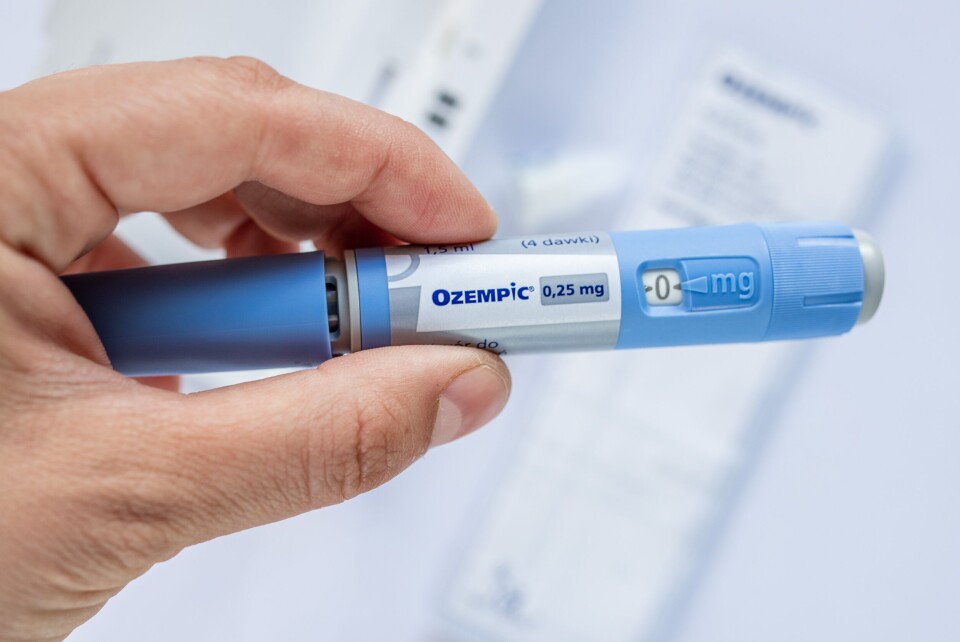-
Red flood alerts continue in south-west - and more heavy rain expected
Garonne river is particularly affected. French weekly weather forecast February 16 - 20
-
Why your car insurance in France is expected to increase this year
Premiums are forecast to rise by four to six percent in 2026
-
Two Britons killed in avalanche in French Alps were with an instructor
French skier also died in the disaster at Val d’Isère on Friday February 13
France issues warning over using diabetes medication to lose weight
It follows a TikTok trend promoting two antidiabetic drugs for weight loss

French health bodies have warned of the dangers of injecting diabetes medication in order to lose weight after a trend emerged on TikTok promoting the practice.
Several users of the app have posted videos in which they inject themselves with Ozempic or Trulicity – medications used to control the effects of diabetes – over a given period of time before revealing how much weight they have lost.
Certain hashtags relating to this trend have accumulated around half a billion views.
Ozempic and Trulicity are used to treat type 2 diabetes, often in conjunction with other medications and often cause weight loss as a side effect.
Demand for the products has surged around the world, causing supply issues in some places, including the US. In Australia, Ozempic will not be available before April 2023.
Will France see the same issues?
In France, there are around 3.5 million people who are prescribed antidiabetic medication, according to Santé publique France, and Jean-François Thébau, the vice president of the Fédération française des diabétiques, has warned that the new trend could result in stock shortages.
“What will happen for diabetic people if we run out of stock?” he asked BFMTV. “There are already shortages within the French market; some pharmacies are struggling to stock up.”
This was confirmed by Pierre-Olivier Variot, president of the Union de syndicats de pharmaciens d’officine.
“A week ago, there were stock issues relating to Ozempic. Three weeks earlier, it was Trulicity,” he told BFMTV.
He added that it is impossible for him to distinguish between people who have diabetes and people who do not, because if people come with a prescription for Ozempic or Trulicity, it does not necessarily include other medications which would reflect that they have diabetes.
France’s Agence nationale de sécurité du médicament et des produits de santé (ANSM) – the government agency in charge of assessing the health risks posed by health products such as pharmaceutical drugs – has reminded doctors to only prescribe the drugs to people with type 2 diabetes.
It said: “At this stage [...] Ozempic sales have been increasing progressively since it entered the market in 2019. The rise is in keeping with the commercialisation of a new medication.
“There has been no particular spike or sudden rise in consumption in recent months in France [...] which might suggest [...] that people are using [the medications] to lose weight.”
Despite this, the agency has begun tracking the medications, and will publish a report on sales, social media interest and misuse in the first three months of 2023.
Do the medications cause side effects?
As well as weight loss, Trulicity can cause nausea, vomiting and diarrhoea in more than one in 10 patients, the Vidal dictionary of medicines states.
Ozempic can also bring about vertigo, an increased heart rate and damage to the pancreas.
“Weight loss is a classic side effect of these medications,” Inserm researcher Cédric Moro told BFMTV. Diabetic people often lose four to six kilos in a year.
“But with the misuse that we are observing, the doses are three to four times higher.
“The problem is that when one increases their dosage, they also increase their chance of experiencing side effects that are much more serious than nausea or diarrhoea.”
These undesirable effects include thyroid issues, pancreatitis and kidney damage. “The health risks are huge,” Mr Moro added.
He warned that people should never start using a medication like this or alter their dosage without this being approved by a medical professional.
Related articles
Covid France: Extra booster fourth vaccine dose now open to all
Levothyrox France: National medicines agency investigated
Common antibiotic joins list of 277 drugs in short supply in France
























